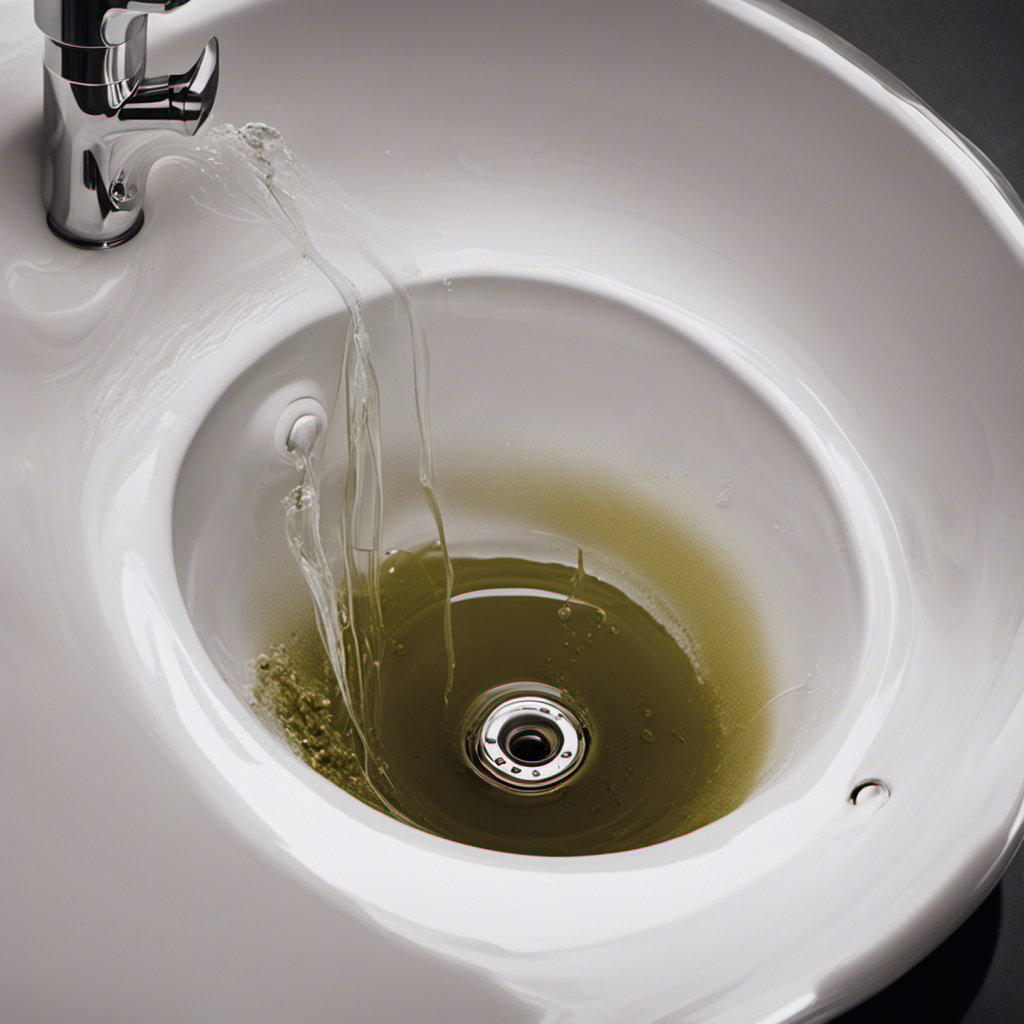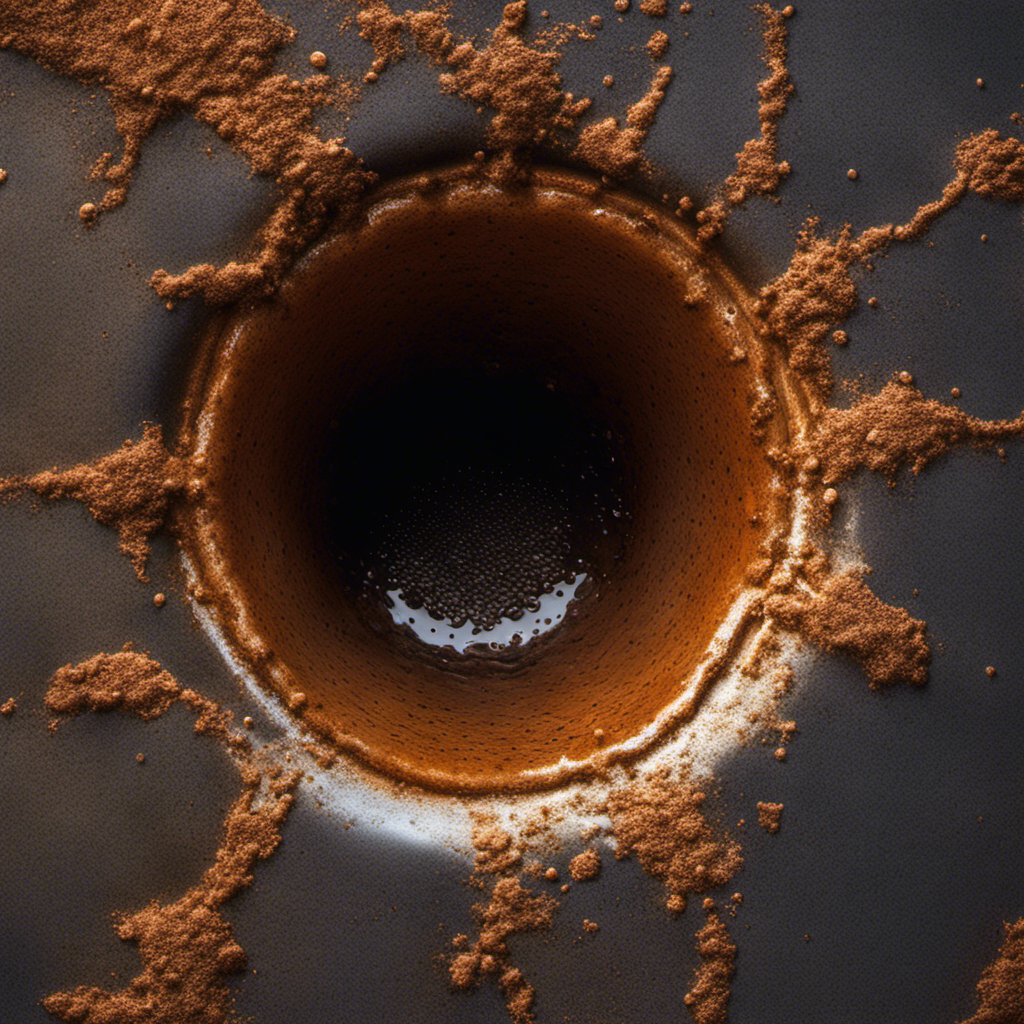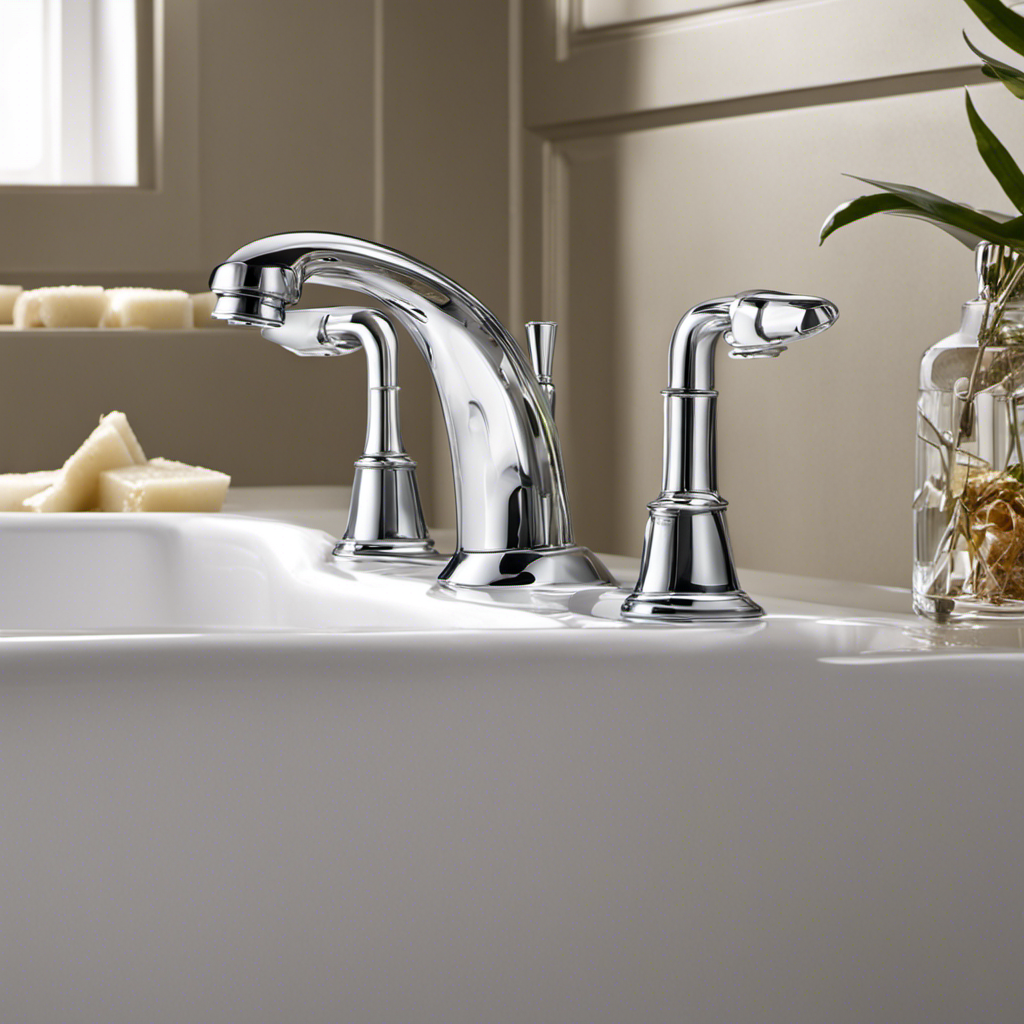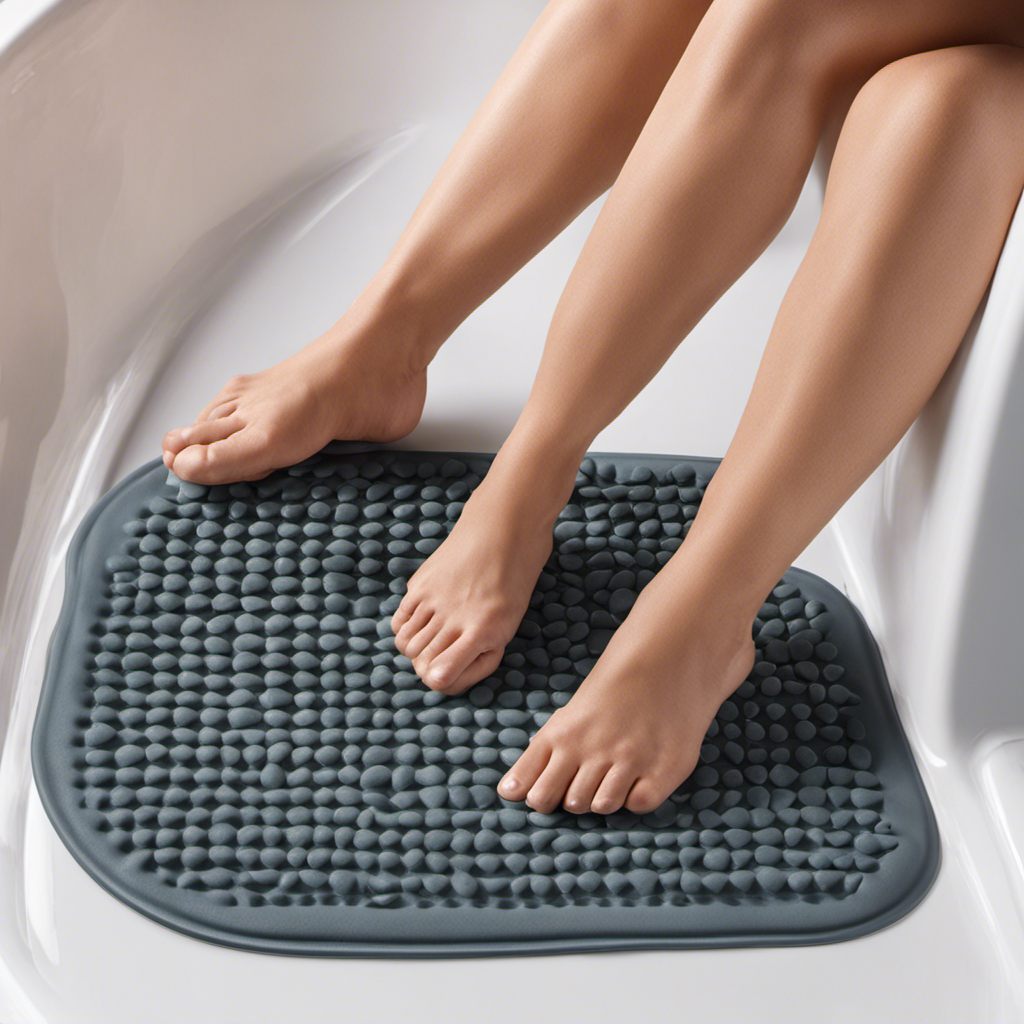Are you tired of waiting for your bathtub drain to empty, like watching a sloth crawl across a branch? If so, you’re not alone. A slow bathtub drain can be frustrating, but understanding the common causes and knowing how to address them can help you reclaim your speedy drainage.
In this article, we will explore the reasons behind a slow bathtub drain, provide tips for identifying a clog, and offer DIY solutions.
Don’t let a sluggish drain slow you down any longer – let’s get to the bottom of this issue!
Key Takeaways
- Hair clogging and accumulation are common causes of slow bathtub drains, which can be prevented by using drain covers or hair catchers and regularly cleaning them.
- Hard water and mineral buildup inside the pipes can also restrict water flow, and the use of water softeners or conditioners can help prevent this issue.
- Identifying a clogged bathtub drain can be done by checking for standing water in the tub, and it is important to avoid misconceptions about using boiling water or chemical drain cleaners as a solution.
- DIY solutions for a slow bathtub drain include using natural remedies like baking soda and vinegar, as well as using a plunger to create suction and dislodge the clog. However, if the problem persists or there are signs of a serious blockage, it is advised to call a professional plumber.
Common Causes of a Slow Bathtub Drain
One of the most common causes of a slow bathtub drain is hair clogging the pipes. When you shower or bathe, loose hair can easily go down the drain and accumulate over time. This buildup restricts the flow of water, resulting in a slow drain.
To prevent this issue, there are some maintenance tips you can follow. First, use a drain cover or hair catcher to trap loose hair before it goes down the drain. Regularly clean the drain cover to remove any collected hair. Additionally, consider using a drain cleaning solution or vinegar and baking soda mixture to dissolve any hair or debris that may be stuck in the pipes.
Another factor that can impact bathtub drain performance is hard water. The minerals present in hard water can create a buildup inside the pipes, leading to reduced water flow. To combat this, use a water softener or install a water conditioner to prevent mineral deposits from forming in your pipes.
How to Identify a Clogged Bathtub Drain
To identify a clogged bathtub drain, you can start by checking for any standing water in the tub. If there is water accumulating, it is likely that your drain is blocked. Here are some common misconceptions about bathtub drain blockages that you should be aware of:
- Pouring boiling water down the drain will solve the problem.
- Using chemical drain cleaners is a safe and effective solution.
- Drano or similar products can be used on any type of drain.
To prevent clogged bathtub drains in the future, follow these steps:
- Use a drain strainer to catch hair and debris.
- Regularly clean your drain using a mixture of baking soda and vinegar.
- Avoid pouring grease or oil down the drain.
By taking these preventative measures, you can help maintain a clear and functioning bathtub drain.
Transitioning into the subsequent section about ‘diy solutions for a slow bathtub drain’, let’s explore some simple fixes you can try before calling a professional plumber.
DIY Solutions for a Slow Bathtub Drain
If you’re experiencing a sluggish drain in your bathtub, there are a few simple DIY solutions you can try.
Before resorting to harsh chemicals or calling a plumber, consider using natural remedies for clearing a slow bathtub drain.
One option is to pour a mixture of equal parts baking soda and vinegar down the drain, followed by hot water. The chemical reaction between the two ingredients can help break down any buildup causing the blockage.
Another method is to use a plunger to create suction and dislodge the clog.
Additionally, preventive measures can be taken to avoid a slow bathtub drain in the first place. Using a drain strainer to catch hair and debris, regularly cleaning the drain, and avoiding pouring grease or oil down the drain can help prevent future blockages.
However, if these DIY solutions don’t work, it may be a sign of a serious bathtub drain blockage.
Signs of a Serious Bathtub Drain Blockage
If you notice water pooling around your feet during a shower, it could be a sign of a serious blockage in your bathtub drain. Ignoring this issue can lead to potential health risks associated with a blocked bathtub drain.
Here are three reasons why you should address a slow bathtub drain immediately:
-
Bacterial growth: Standing water in the bathtub provides a breeding ground for harmful bacteria, which can lead to skin infections and other health problems.
-
Mold and mildew growth: Moisture buildup caused by a blocked drain can create the perfect environment for mold and mildew to thrive. Breathing in these spores can trigger allergies and respiratory issues.
-
Water wastage: A slow bathtub drain affects water drainage and usage efficiency. It takes longer for the water to drain, resulting in increased water consumption and higher utility bills.
To avoid these potential health risks and maintain efficient water usage, it’s crucial to address a slow bathtub drain promptly.
When to Call a Professional for a Slow Bathtub Drain
When experiencing a persistent issue with your bathtub drain, it’s time to consider calling a professional for assistance. While some minor drain issues can be resolved with do-it-yourself methods, there are certain signs that indicate a partially blocked drain, which requires the expertise of a professional.
One such sign is a slow draining bathtub. If you notice that water takes longer than usual to drain, it could be an indication of a partial blockage. Additionally, if you hear gurgling sounds coming from the drain or notice an unpleasant odor, it’s best to call a professional. These signs suggest that the blockage might be deeper in the plumbing system, and attempting to fix it yourself could lead to further damage.
Frequently Asked Questions
How Much Does It Cost to Hire a Professional Plumber for a Slow Bathtub Drain?
Hiring a professional plumber for a slow bathtub drain can cost anywhere from $100 to $300, depending on the complexity of the issue. However, there are alternative methods you can try before resorting to hiring a plumber.
Can Using a Plunger Help Unclog a Slow Bathtub Drain?
Using a plunger can be an effective way to unclog a slow bathtub drain. However, if that doesn’t work, you may need to try using a snake or natural home remedies.
Is It Safe to Use Chemical Drain Cleaners to Unclog a Slow Bathtub Drain?
Using chemical drain cleaners to unclog a slow bathtub drain has its pros and cons. It can be effective, but may damage pipes. Safer alternatives include using a plunger, a drain snake, or a mixture of baking soda and vinegar.
What Are Some Preventive Measures to Avoid a Slow Bathtub Drain?
To prevent a slow bathtub drain, take these preventive measures and try DIY solutions. Regularly remove hair and debris from the drain, use a drain cover, avoid pouring grease or oil down the drain, and periodically flush with hot water.
Can a Slow Bathtub Drain Be a Sign of a Larger Plumbing Issue in the House?
If your bathtub drain is slow, it could indicate larger plumbing issues. Signs of clogged pipes include gurgling sounds, foul odors, and water backing up in other drains. It’s best to address the problem promptly to avoid further damage.
Conclusion
In conclusion, if you find yourself dealing with a slow bathtub drain, don’t panic. By identifying the common causes and using DIY solutions, you can often resolve the issue on your own.
However, be aware of the signs of a serious blockage, such as foul odors or multiple drains backing up. In those cases, it is best to call a professional plumber for assistance.
Remember, addressing a slow bathtub drain is like unclogging a traffic jam – it requires patience and the right tools to keep the water flowing smoothly.










